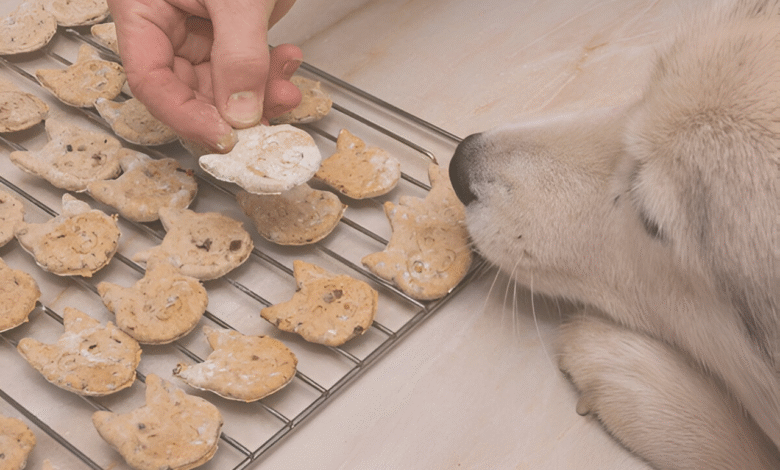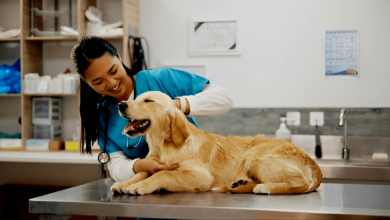
Best Homemade Dog Food Recipes Vets Actually Recommend
Discover vet-approved homemade dog food recipes for optimal pet health. Balanced, nutritious meals using fresh ingredients your dog will love.
When it comes to your dog’s health, homemade dog food recipes vets recommend can be a game-changer for their nutrition and wellbeing. Many commercial dog foods contain fillers, preservatives, and low-quality ingredients that may not meet your pet’s specific dietary needs. By preparing meals at home using vet-approved recipes, you gain complete control over what goes into your dog’s bowl while ensuring they get balanced, wholesome nutrition. This will share professional-approved recipes and essential guidelines to help you create healthy, delicious meals your pup will love.
Before switching to homemade meals, it’s crucial to consult with your veterinarian to address your dog’s unique nutritional requirements. Factors like age, breed, activity level, and any existing health conditions significantly impact their dietary needs. The homemade dog food recipes vets recommend in this guide are formulated with the right balance of proteins, carbohydrates, healthy fats, and essential vitamins. Whether your dog needs a simple chicken recipe or a nutrient-packed fish meal, these vet-approved options provide safe, nutritious alternatives to processed kibble.
Best Homemade Dog Food Recipes Vets Actually Recommend
Why Choose Homemade Dog Food?
Many pet owners opt for homemade dog food because it eliminates artificial preservatives, fillers, and low-quality ingredients found in some commercial brands. Veterinarians often suggest homemade diets for dogs with allergies, digestive issues, or weight management needs. By preparing meals at home, you can use fresh, whole ingredients that promote better digestion, a shinier coat, and improved energy levels. However, not all homemade meals are automatically healthy. A common mistake is feeding dogs unbalanced meals lacking essential nutrients like calcium, taurine, or omega-3 fatty acids.
Essential Nutrients for Homemade Dog Food
High-Quality Proteins
Proteins from chicken, turkey, beef, fish, and eggs are vital for muscle maintenance and repair. Organ meats like liver provide essential amino acids and vitamins but should be given in moderation. Vegetarian proteins (lentils, quinoa) can supplement but shouldn’t replace animal proteins. Always cook meats thoroughly to eliminate bacteria while preserving nutrients.
Healthy Fats & Omega Fatty Acids
Fats from salmon oil, flaxseed, and coconut oil support skin, coat, and brain health. Omega-3s reduce inflammation while omega-6s promote skin hydration. Balance is key – too much fat can cause pancreatitis, while too little leads to dry skin. Include about 1 tsp of healthy oils per 20 lbs of body weight daily.
Digestible Carbohydrates
Sweet potatoes, brown rice, oats, and pumpkin provide energy and fiber for digestion. Carbs should make up 20-30% of the diet for most dogs. Avoid refined grains and excessive fiber which can cause bloating. Cook carbs thoroughly to improve digestibility and nutrient absorption.
Essential Vitamins
Vitamin A (carrots, liver) supports vision, while Vitamin E (spinach, almonds) acts as an antioxidant. B-complex vitamins (eggs, liver) aid metabolism and energy production. Most vitamins are obtained through varied whole foods, but some may require supplementation. Always consult your vet before adding vitamin supplements.
Crucial Minerals
Calcium (eggshell powder, yogurt) and phosphorus (meats) must be balanced for bone health. Zinc (beef, pumpkin seeds) supports immunity while iron (spinach, liver) prevents anemia. Iodine (fish, seaweed) regulates thyroid function. Mineral imbalances can be dangerous – professional guidance ensures proper ratios.
Hydration & Electrolytes
Fresh water should always be available, as homemade food contains less moisture than canned diets. Bone broth provides hydration plus minerals like magnesium and potassium. For active dogs, occasional electrolyte supplements can help maintain balance. Monitor water intake as changes may indicate health issues.
Vet-Approved Homemade Dog Food Recipes
Simple Chicken & Veggie Bowl
This easy homemade recipe is perfect for dogs with sensitive stomachs or allergies to red meat. Made with lean chicken breast, fiber-rich vegetables, and digestible quinoa, it provides balanced nutrition without fillers. The addition of olive oil supports skin health, while turmeric offers natural Anti-inflammatory benefits. Serve at room temperature for a meal that’s both nutritious and delicious.
Beef & Sweet Potato Stew
This protein-packed stew is ideal for active dogs needing sustained energy and muscle support. Made with lean ground beef, vitamin-rich sweet potatoes, and fiber-filled peas, it delivers a perfect balance of nutrients. The coconut oil adds healthy fats for skin and coat health, while the natural sweetness makes it irresistible to picky eaters.
Salmon & Rice Delight
This omega-rich recipe is perfect for dogs needing joint support or a skin-and-coat boost. Made with flaked salmon, fiber-packed brown rice, and nutrient-dense spinach, it provides essential fatty acids for optimal health. The added fish oil enhances cognitive function while reducing inflammation, making it great for senior dogs.
Common Mistakes to Avoid
Using Toxic or Unsafe Ingredients
Never include onions, garlic, grapes, chocolate, or xylitol – these can cause serious health issues. Some human foods like avocados and macadamia nuts are also dangerous for dogs. Always research ingredients thoroughly before preparing meals, as even small amounts of toxic foods can be harmful.
Ignoring Nutritional Balance
A common error is creating meals that lack essential nutrients like calcium or taurine. Too much of one ingredient (like protein) can strain kidneys over time. Consult your vet about proper supplementation to ensure complete nutrition in every meal.
Improper Food Preparation
Undercooked meats may contain harmful bacteria that can make your dog sick. Always cook meats thoroughly and avoid seasoning with salt, spices, or oils. Remove all bones from fish and poultry to prevent choking or internal injuries.
Sudden Diet Changes
Switching to homemade food too quickly can cause digestive upset like diarrhea or vomiting. Transition gradually over 7-10 days by mixing increasing amounts of homemade food with their current diet. Monitor your dog’s stool and energy levels during the transition.
Incorrect Portion Sizes
Overfeeding can lead to obesity, while underfeeding causes malnutrition. Calculate portions based on your dog’s weight, age and activity level – typically 2-3% of body weight for adults. Adjust amounts if your dog gains or loses weight unexpectedly.
Poor Food Storage Practices
Leaving homemade food out too long breeds bacteria – refrigerate for up to 3 days or freeze portions. Always thaw frozen food properly and never reheat in microwave (creates hot spots). Discard uneaten food after 30 minutes to prevent spoilage.
Not Consulting Your Veterinarian
Every dog has unique nutritional needs based on breed, age and health conditions. Get professional guidance before starting homemade meals, and schedule regular check-ups to monitor your dog’s health on the new diet. Blood tests can reveal any deficiencies.
Read More: Foods That Are Dangerous for Dogs and Cats
Conclusion
Preparing homemade dog food recipes vets recommend can significantly improve your pet’s health when done correctly. By using fresh, high-quality ingredients and following proper nutritional guidelines, you’ll provide meals that support your dog’s energy, digestion, and overall wellbeing. Remember that balance is key these vet approved recipes ensure your furry friend gets all the essential proteins, vitamins, and minerals they need without harmful additives found in commercial foods.
While homemade dog food recipes vets recommend offer numerous benefits, always consult your veterinarian before making dietary changes. Regular check-ups will help monitor your dog’s response to the new diet and allow for necessary adjustments. With proper planning and professional guidance, homemade meals can become a rewarding way to show love to your canine companion through nutritious, delicious food tailored to their specific needs.
FAQs
Is homemade dog food better than commercial dog food?
Homemade dog food can be healthier if properly balanced, as it avoids fillers and artificial additives found in some commercial brands.
How do I ensure my homemade dog food is nutritionally complete?
Follow vet-approved recipes, include a variety of proteins and veggies, and consider adding a canine multivitamin.
Can I feed my dog raw meat in homemade meals?
Some Homemade Dog Food cooked meat to avoid bacteria, but consult your vet before introducing a raw diet.
How much Homemade Dog Food should I feed my dog daily?
Portion sizes depend on weight, age, and activity level—your vet can provide personalized recommendations.
Are there any Homemade Dog Food I should never give my dog?
Avoid toxic foods like chocolate, grapes, onions, and xylitol-containing products. Always check ingredient safety before feeding.







